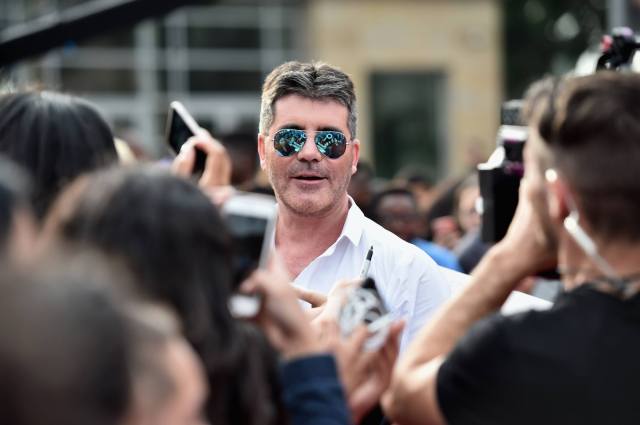Credit: Alberto E. Rodriguez/Getty

The purpose of UnPacked is to comment and expand upon the best in-depth journalism the English-speaking world has to offer. But what caught my eye today wasn’t a David Brooks column, a profile of Jordan Peterson, or a review of Mariana Mazzucato’s latest book. Rather, today, I’ll be unpacking a tweet storm about, er, Simon Cowell.
The sequence of tweets came from Jamie Bartlett, author of The People Vs Tech, and his starting point was the shattering revelation that Cowell no longer uses a smartphone:
“Simon Cowell has given his smartphone up for 10 months and is apparently *delighted*. This got me thinking about a potential new inequality between the tech-haves and tech-havenots.”
Bartlett observes that going offline is easy when you’ve got PAs, PRs and every other kind of flunky running your life.
I’m sure it is, but it was the next tweet that made me sit up:
“The assumption 10 years ago was that rich people would have all the great tech and poor people wouldn’t. What if it’s the opposite? Rich people can afford to have a more healthy relationship with devices, and most of us (for reasons of convenience, necessity or cost) cannot.”
It’s a fascinating theory, and one that reflects our cultural slide towards techno-pessimism, but how true is it?
Work pressures can certainly keep people tethered to their screens. And if you organise your life online, then a smartphone – as your all-in-one diary, address book, to-do list, library, notepad, photo album, record collection and shopping catalogue – is essential (unless you have your own ‘people’ to do it all for you).
However, in this respect, our smartphone use is a digital substitute for the analogue things we’d be doing anyway – and, in fact, were doing in the before-time. The real problem with smartphones derives from those capabilities that have no analogue precedent – above all the social media. It is these that represent the biggest waste of time, the most insistent sources of distraction, the deadliest seeds of addiction.
And yet these aspects of the digital experience are also the most unnecessary. You really don’t have to be rich to do without them: delete your Facebook account, come off Twitter, and the sun still rises. Though you may have to use social media for work purposes, it’s not that difficult to filter your exposure only to what you need to know about. Indeed, many employers find it necessary to compel such restrictions in the workplace.
So why don’t we detach ourselves from the digital umbilicus (at least, for some of the time)? It’s not that we can’t, because not so long ago it didn’t exist and yet, somehow, we got through each day. In fact, it was only the rich who lived in a bubble of constant electronic communication. The idea that you now have to be rich not to, is less than convincing.
But if affordability isn’t the issue, how else can we explain the elitist nature of the ‘digital detox’?
My guess is that it’s part of a older, broader pattern: the tendency of the rich to reject luxuries that become abundant. Luxuries aren’t just valued because they’re luxurious, but also because they serve as positional goods. Possessing them signals your status, including to yourself. However, once everybody has them, they lose that value.
White bread was once a luxury. But when the mechanisation of the sifting process allowed white flour to be mass produced, it became a staple of the poor. To the extent that the rich eat bread at all – the carbs! the carbs! – their loaves of choice resemble what was once called ‘horsebread‘ .
Lack of physical exertion was another privilege reserved for the (idle) rich. Now, it’s considered to be a widespread social problem. Today’s elites, meanwhile, pay aggressive men to shout at them to work harder, run faster and lift heavier weights – which the average peasant used to get for free.
I can’t help thinking that digital falls into the same category. In an age of ubiquitous connectivity, the new positional good is to be disconnected.










Join the discussion
Join like minded readers that support our journalism by becoming a paid subscriber
To join the discussion in the comments, become a paid subscriber.
Join like minded readers that support our journalism, read unlimited articles and enjoy other subscriber-only benefits.
Subscribe